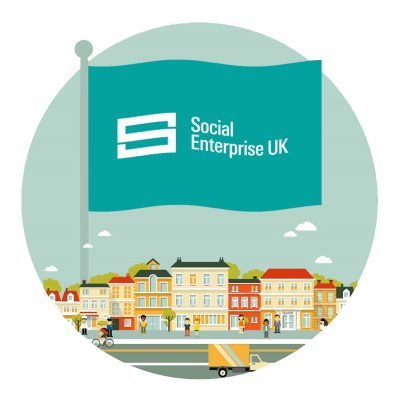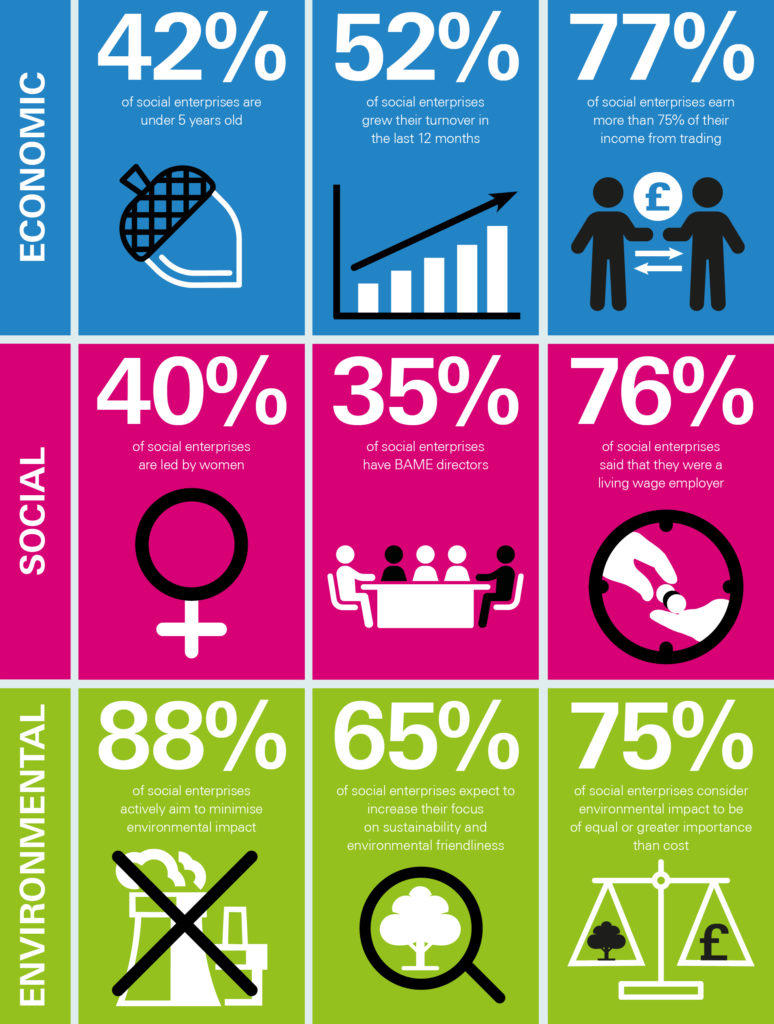What is a Social Enterprise?
What are social enterprises?
Social Enterprises are business that trade for a social purpose. There is no specific legal definition of a social enterprise, but they have most of the following characteristics:
- They earn a significant amount of their income through trading.
- They have a social purpose which is written into their governing document.
- Their surpluses are used to support their social purpose.
- They frequently have an ‘asset lock’ which means that the assets can’t be distributed for private gain.
In addition:
- They are often owned by the community they are set up to support.
- They frequently provide employment for people who could not work in the mainstream labour market.
- They may be owned by or grown out of existing charities.
- They can be commissioned to deliver public services.
Social enterprise can be constituted in a number of ways, including as charities, co-operatives, Limited by Guarantee or community interest companies – or a mixture of these. Their boards may include some paid staff but otherwise are likely to be volunteers, including beneficiary groups or people representative of the communities they support.
What do they do?
Social enterprises are businesses that trade in order to tackle the major challenges we face in society. They make their money from selling goods and services in the open market, but reinvest their profits back into the business or the local community.
Social enterprises create jobs, pay taxes and contribute to their local economies but they also seek to create social and public benefit, providing added social value for communities, including some of the most vulnerable groups.
Here is a list of some of the things that social enterprises do:
- Create jobs for people with disabilities
- Run community shops and pubs
- Run community centres and support local regeneration
- Provide nursing and domiciliary care
- Organise community events and run leisure facilities
- Provide out of hours GP services and run practices in disadvantaged communities
- Support disadvantaged children and your people within education
- Enable people in receipt of care funding to manage their own care support
- Run local energy co-ops
- Provide housing and housing support
- Provide community transport
There are over 100,000 social enterprises throughout the country contributing £60 billion to the economy and employing two million people.
Social Enterprise UK define social enterprises as businesses that:
- Have a clear social and/or environmental mission set out in their governing documents
- Generate the majority of their income through trade
- Reinvest the majority of their profits
- Are autonomous of the state
- Are majority controlled in the interests of the social mission
- Are accountable and transparent

Want to read more? Social Enterprise UK have more detail on the sector thanks to their State of Social Enterprise Report which is the most comprehensive research undertaken into the state of the sector. It shows that social enterprises in the UK are thriving, outperforming their mainstream SME counterparts in nearly every area of business: turnover growth, workforce growth, job creation, innovation, business optimism, and start-up rates. Here are some key findings:

